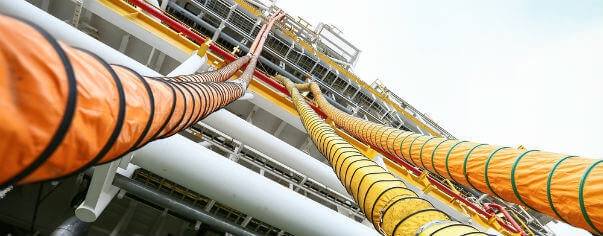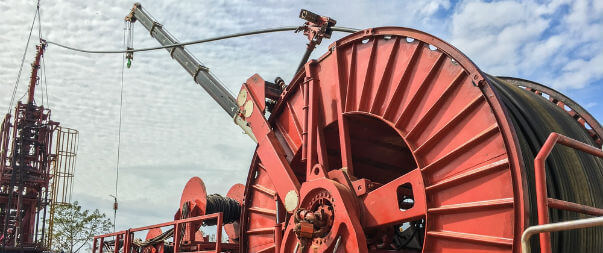
What is Nitrogen Purging & How Does it Work?
In many industrial processes, controlling moisture and oxygen levels is key to protecting product quality. Water vapor and oxidation can cause serious damage, making it important for manufacturers to manage these risks.
One common solution is nitrogen purging.
What is Nitrogen Purging?
Nitrogen purging is a method used to clear out unwanted gases or substances from a system or container by replacing the air with nitrogen gas. Industries like oil and gas, electronics manufacturing, and food packaging often rely on this technique.
The main goals of nitrogen purging are:
- Inerting: Nitrogen is an inert gas, meaning it does not react with other substances. By purging with nitrogen, oxygen, and other reactive gases are displaced, reducing the risk of combustion or oxidation in certain environments.
- Oxygen Removal: In oxygen-sensitive processes or storage, N2 purging helps eliminate oxygen, preventing corrosion, degradation, or unwanted chemical reactions.
- Moisture Control: Nitrogen is dry, and purging with it helps control moisture levels, minimizing the potential for rust, mold, or other moisture-related issues.
- Contaminant Removal: By replacing the atmosphere with nitrogen, unwanted contaminants or impurities are flushed out, ensuring a clean and controlled environment.
The process works by adding nitrogen into the system or container, which pushes out the existing air or gases. This displaced air is vented, leaving a nitrogen-rich environment behind. N2 purging helps improve safety, protect product quality, and maintain proper conditions in many industrial applications.
How Nitrogen Purging Differs from Other Purging Methods
While nitrogen purging is widely used, other techniques are sometimes chosen for clearing gases or contaminants. Here’s how they compare:
- Steam Purging: Uses high-temperature steam to clean pipelines or vessels. While effective, steam can leave behind moisture, making it less ideal for moisture-sensitive systems.
- Vacuum Purging: Creates a vacuum to pull out unwanted gases. This method works well but requires specialized equipment and isn’t always practical for larger systems.
- Carbon Dioxide Purging: CO₂ can displace oxygen but is more corrosive than nitrogen and may add moisture if not properly managed.
Nitrogen is often the preferred option because it’s dry, inert, and displaces oxygen without introducing moisture or byproducts.

Why Nitrogen Purging is Necessary
The benefits of nitrogen purging are clear, mainly to prevent chemical changes in products and avoid moisture-related damage or even combustion.
Many industrial processes are vulnerable to the negative effects of moisture or oxygen-rich air. Exposure to these elements can cause oxidative damage, reducing the quality of the final product and hurting profitability. Nitrogen purging helps prevent these issues, making it essential for oxygen-sensitive operations.
Common Applications of Nitrogen Purging Systems
Nitrogen gas purging is currently being used across a range of industrial manufacturing processes, and purging is one of the reasons the industrial use of nitrogen is so common. Outlined below are some key uses of nitrogen flushing procedures in different applications.
- Nitrogen blanketing for ships, tankers, and potentially combustible environments
- Brewery purging headspaces to extend the shelf life of beer
- Nitrogen purging for transformers and volatile electrical environments
- Purging organic compounds in the chemical/petrochemical industries
- Pipeline drying and purging to limit oxygen concentrations – learn more about NiGen’s nitrogen pipeline purging services.
- Toxic gas elimination in process chambers (e.g., sputtering tools)
- Modified Atmosphere Packaging with food-grade nitrogen in food production and packaging plants to remove moisture, oxygen, and other gaseous impurities
- Metal fabrication where N2 purging systems are used to eliminate compounds that might affect weld quality
Four Types of Nitrogen Purging Systems
There are various N2 purging systems, and the choice depends on specific operational needs. Below, we describe four key types of nitrogen purging systems:
-
Displacement Purging with Nitrogen Gas: This method is great for equipment with simple cross-sections like pipelines. It uses a cleaning component called a “pig” that is pushed through the system by pressurized nitrogen gas, removing any gas or particles inside.
-
Dilution Purging with Nitrogen Gas: Here, nitrogen is mixed with the gas being removed, and the mixture is expelled through an outlet far from the inlet. It works well for both simple and complex systems like kilns, reactors, and columns.
-
Pressure Liquid Transfer: Ideal for systems with limited space, this method moves liquids without needing an external pump. Pressurized nitrogen gas moves the liquid, pressurizing the headspace and purging the vessel. This reduces the chance of oxidation during liquid transfer.
-
Pressure-Hold Vacuum Method: Used for equipment with only one vent, this technique pressurizes the vessel with nitrogen. After mixing the contents with nitrogen, dilution and venting occur. This process is repeated to achieve the right purge level.
Factors That Impact Nitrogen Purging Efficiency
Several variables can affect how efficiently nitrogen displaces unwanted gases:
- Pressure & Flow Rate: Must match system size; too low causes incomplete purging, too high causes turbulence.
- Purge Point Locations: Proper gas entry/exit placement avoids air pockets and contaminants.
- Temperature: Cold temps can cause nitrogen to condense; adjust pressure or heat nitrogen if needed.
- System Design: Complex layouts may need adjustments for thorough purging.
- Nitrogen Purity: High-purity nitrogen reduces risk of impurities.
Nitrogen Purging in Pipelines
Pipeline purging with nitrogen gas is an important step when preparing natural gas lines for use. This process removes oxygen, water vapor, and other impurities that can remain in newly installed pipelines. If these substances aren’t cleared out, they can affect the quality of the materials flowing through the system.
The process is fairly simple — pressurized nitrogen is pushed through the pipeline, forcing out unwanted gases and particles.
Pipeline Purging Safety Tips
Since nitrogen purging comes with some risks, it’s important to follow these safety steps:
- Ensure meticulous instruments/apparatus handling
- Properly train and brief all personnel on how to safely perform their duties
- Designate emergency protocols for shutdown and personnel evacuation with the provision of multiple points of egress
- Mandatory use of personal protective equipment by all personnel involved in purging operations
NiGen Offers Trusted Nitrogen Purging Services
For years, NiGen has provided reliable nitrogen generation solutions for a variety of industrial needs. Our cost-effective on-site nitrogen generators serve industries of all types. If you only need nitrogen temporarily, ask about our nitrogen generator rental options.
Contact us today for a quote or to learn more about our products and services.

